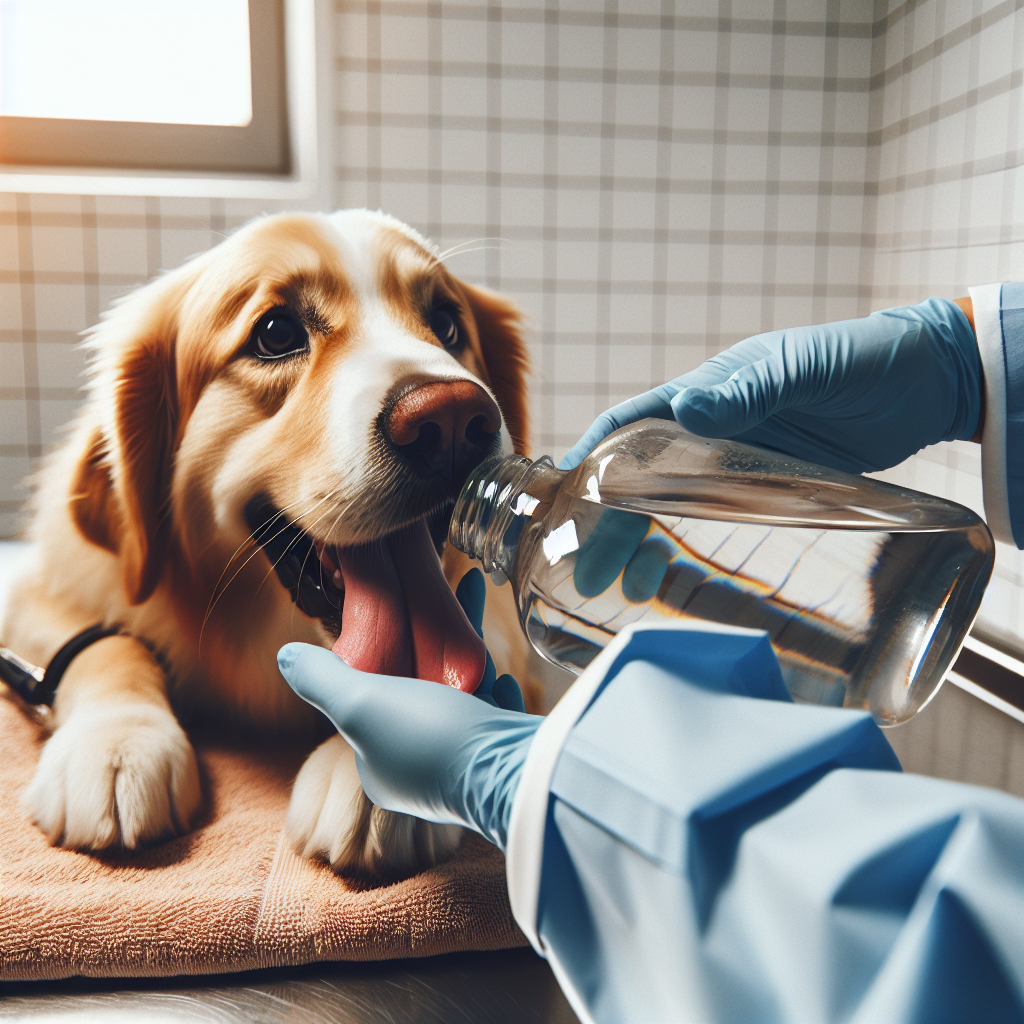Can Dogs Have Water Before Anesthesia? Veterinary Guidelines3 min read

Preparing your dog for anesthesia can be stressful, especially when it comes to fasting and water restrictions. Following proper pre-surgery protocols is essential for minimizing risks and ensuring a smooth recovery. In this guide, we’ll cover the veterinary guidelines for giving water to dogs before anesthesia, along with other important pre-surgery considerations.
Understanding Pre-Anesthesia Fasting Requirements
Veterinarians typically recommend withholding food from dogs for 8-12 hours before anesthesia. This fasting period is crucial for reducing the risk of aspiration pneumonia, which can occur if a dog vomits and inhales stomach contents while under anesthesia. Fasting helps ensure the stomach is empty and minimizes this risk.
However, the guidelines for water intake before anesthesia are slightly different. In most cases, dogs can have water up until the time of the procedure. This is because water passes through the stomach quickly and doesn’t pose the same aspiration risk as food.
Benefits of Allowing Water Before Anesthesia
- Maintains hydration levels
- Supports organ function
- Aids in recovery process
Exceptions to the Water Rule
While most dogs can have water before anesthesia, there are some exceptions. Dogs with certain medical conditions, such as diabetes or kidney disease, may need to follow different pre-surgery protocols. In these cases, your veterinarian will provide specific instructions tailored to your dog’s needs.
Other Important Pre-Surgery Considerations
In addition to fasting requirements, there are several other steps you can take to prepare your dog for anesthesia:
Pre-Anesthetic Blood Work
Your veterinarian may recommend pre-anesthetic blood work to assess your dog’s overall health and identify any underlying issues that could impact anesthesia. This typically includes tests for liver and kidney function, blood cell counts, and electrolyte levels.
Medication Adjustments
If your dog takes regular medications, your veterinarian may advise adjusting the dosage or timing before anesthesia. Some medications, such as anti-inflammatories or blood thinners, can interact with anesthetic agents and increase the risk of complications.
Stress Reduction Techniques
Keeping your dog calm and relaxed before anesthesia can help reduce stress and improve the overall experience. Consider using pheromone diffusers, calming supplements, or gentle massage to soothe your dog’s nerves.
Post-Anesthesia Care and Monitoring
After the procedure, your dog will need close monitoring and care to ensure a smooth recovery. Your veterinarian will provide specific instructions for post-anesthesia care, which may include:
- Gradually reintroducing food and water
- Administering pain medication as needed
- Restricting activity for a specified period
- Monitoring for signs of complications
It’s important to follow these instructions closely and contact your veterinarian if you have any concerns about your dog’s recovery.
Frequently Asked Questions
Can I give my dog a small meal before anesthesia?
No, it’s essential to follow the fasting guidelines provided by your veterinarian. Giving your dog food before anesthesia can increase the risk of aspiration pneumonia and other complications.
How long does it take for a dog to recover from anesthesia?
Recovery times vary depending on the individual dog and the type of procedure performed. Most dogs will be groggy and disoriented for several hours after anesthesia. It’s important to provide a quiet, comfortable space for your dog to rest and recover.
What should I do if my dog vomits after anesthesia?
If your dog vomits after anesthesia, contact your veterinarian immediately. Vomiting can be a sign of complications and may require additional treatment or monitoring.
Conclusion
Understanding the guidelines for giving water to dogs before anesthesia is an important part of ensuring a safe and successful procedure. While most dogs can have water up until the time of anesthesia, it’s crucial to follow your veterinarian’s specific instructions and communicate any concerns you may have.
By taking a proactive approach to pre-anesthesia preparation and post-procedure care, you can help minimize risks and support your dog’s smooth recovery. Remember, your veterinarian is your best resource for guidance and support throughout the entire process.
